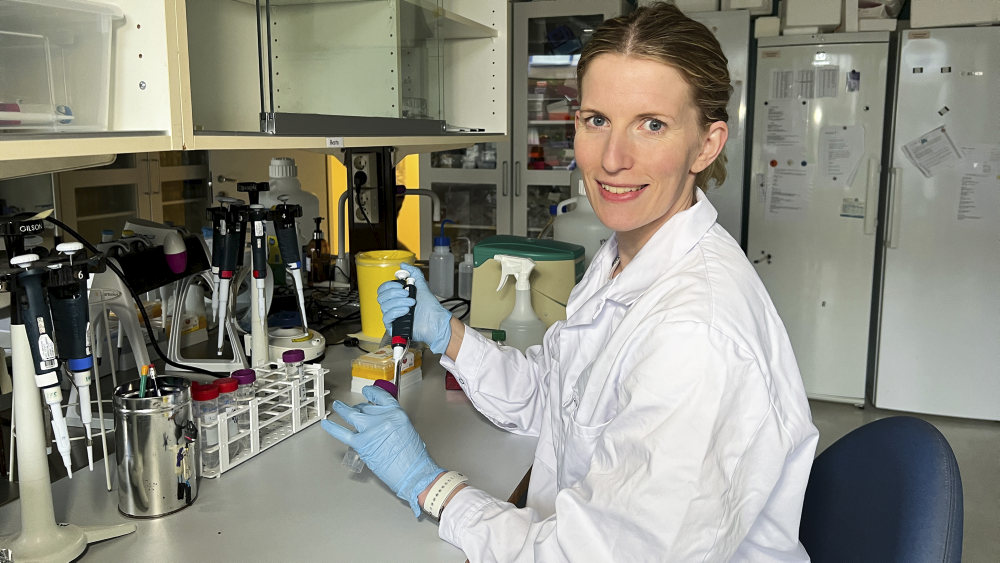What made you apply to the Scientia Fellows programme?
Applying to the Scientia Fellows programme originally stemmed from a collaboration during my PhD back in Finland – I learned of the programme through our previous research associations, and together with my host, Prof Jukka Corander at the Department of Biostatistics at UiO, we set out to design a joint proposal, as we found the SF programme to offer a perfect setting for a postdoctoral research project.
What is your academic background?
I am veterinarian (DVM) by education – I also practiced as a veterinary physician during my PhD. I received my PhD at the Faculty of Veterinary Medicine of the University of Helsinki, Finland, on the genetics of foodborne zoonotic bacteria. Since then, I have gradually forwarded my research focus to bioinformatics and have been working on the whole-genome sequencing and evolutionary population genomics of pathogenic bacteria.
When did you arrive in Norway, what has been your experience living and working here?
I started in my current position at UiO in 2019 and was fortunate enough to settle in before the pandemic waves hit Norway. Coming from another Nordic country, major cultural differences are very few, but as a sports enthusiastic, I have already grown particularly appreciative of all the possibilities for outdoor activities for which Norway harbours a completely unique setting.
In addition, I very much value the academic working environment at UiO and in Norway. As part of my SF project, to conduct much of the whole-genome sequencing included, I got to work the best part of 2021 in Tromsø in the care of our collaborating Pål Johnsen lab at the UiT. During my time in Tromsø, along with working with an excellent research group, expert in evolutionary and population microbiology, I also got to experience the wonderful nature of northern Norway and all its seasons from summery midnight sun to wintry midnight aurora.
What have you learned so far as a Scientia fellow and what do you think your colleagues have learned from you?
Our group is a true multidisciplinary team with expertise from various backgrounds from statistics to microbiology which I believe greatly benefits the entire group, now also harbouring several Scientia Fellows! While I have had the opportunity to lean on the mathsy ideas and coding skills of my fellow researchers, I have some genetical and clinical points of view to give in return. Along the way, the SF programme itself has offered many useful courses on key practicalities such as career development and science communication.
How does participating in Scientia Fellows benefit postdoctoral candidates?
The Scientia Fellows programme provides structured framework for embarking on one’s postdoctoral research career while ensuring flexibility in designing and conducting one’s own project, not to mention the support it offers for one’s further career development and education in academic skills from grant proposal writing to scientific presentations. The programme also offers invaluable peer support from other Fellows.
I’d warmly recommend applying to a Scientia Fellows postdoc position to anyone with a research interest in any of the thematic areas in the call.
On a specific note, on top of advancing one’s scientific career, Norway has endless opportunities to offer for all the fellow outdoors sports enthusiasts.
What is your research focus? What have you achieved so far and what do you expect to achieve the next years?
My research is currently focused mainly on microbial population genomics – in particular, evolutionary adaptation of bacterial populations over time and across different environments and host types, with a specific interest in the emergence and dissemination of antimicrobial resistance traits and plasmid-borne resistance. Specifically, my SF project applies multi-layer omics to study the evolutionary adaptation and success of a global multi-drug resistant E. coli clone ST131, E. coli also being one of the WHO global critical priority pathogens. In concert with our joint projects within the group and with our collaborators, we have already been able to unravel some of the many peculiarities in the success of the ST131 clone, alongside methodological developments in combining the very latest sequencing techniques to build hybrid assemblies on an unprecedented large scale. To complete the multi-omics approach and to paint a comprehensive picture of the population-level variation of the genome and transcriptome of the E.coli ST131 clone, the final year of the project will be focused on finalising the high-throughput RNA sequencing analyses.
How will your research contribute to your field of expertise?
The SF project will add to the current understanding of the evolution and rapid dissemination of high-risk global bacterial clones that cause significant and increasing disease burden worldwide. Awareness of the genetic mechanisms underlying the selection of these particularly successful lineages is pivotal in limiting their global spread. The knowledge gained in the project can further be employed in designing optimised treatment protocols, particularly tackling the emerging resistance to last-resort antibiotics in pathogenic bacteria.
Call 4 in Scientia Fellow
This call is now closed
